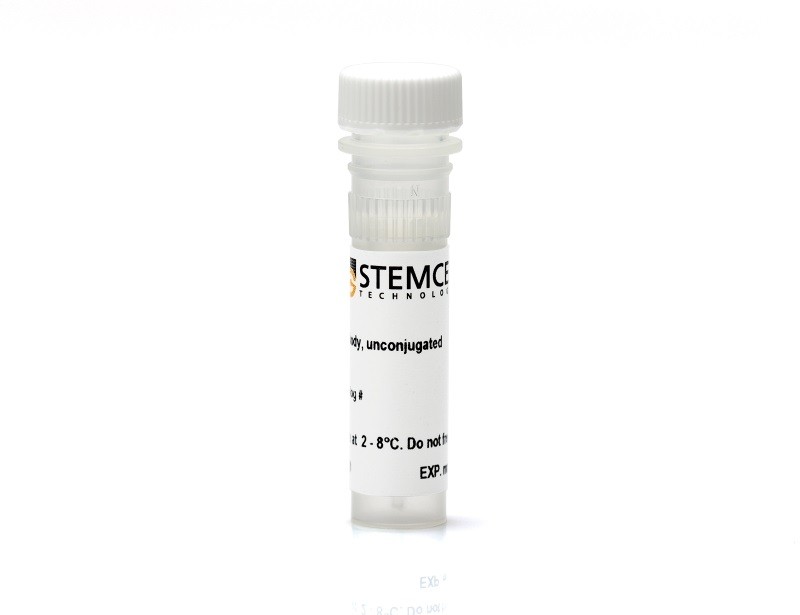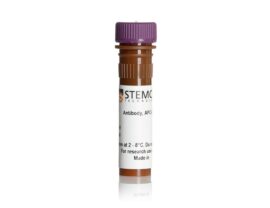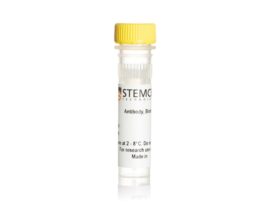
Overview
The TUJ1 antibody reacts with beta-tubulin III, an ~50 – 55 kDa structural protein that is a component of tubulin. Tubulin is the major component of microtubules within the cytoskeleton and is assembled from heterodimers of alpha and beta tubulin subunits. The beta III isoform of tubulin, also known as neuron-specific class III beta-tubulin, is expressed primarily in neurons and is widely used as a marker to distinguish neurons from other cell types. Beta-tubulin III contributes to microtubule formation in neuronal cell bodies and axons, a function involving GTP binding, and plays roles in axonal transport, neuronal cell proliferation, and differentiation. It is highly expressed in several types of cancer and is a predictive and prognostic marker for various tumors, for example, being found in neoplastic but not in normal glial cells. The TUJ1 antibody is expected to recognize all mammalian homologs of beta-tubulin III and the epitope has reportedly been mapped to the C-terminal 15 amino acids of the protein.
Subtype: Primary Antibodies
Target Antigen: Beta-Tubulin III
Alternative Names: CDCBM, CDCBM1, CFEOM3, CFEOM3A, Class III beta-tubulin, FEOM3, TUBB4, Tubulin beta-3 chain, Tubulin beta-III, Tubulin beta-4 chain
Reactive Species: Human; Mouse; Other; Rat
Conjugation: Unconjugated
Host Species: Mouse
Cell Type: Neural Cells, PSC-Derived; Neurons
Application: Flow Cytometry; Immunocytochemistry; Immunofluorescence; Immunohistochemistry; Immunoprecipitation; Western Blotting
Area of Interest: Neuroscience; Stem Cell Biology
Clone: TUJ1
Gene ID: 10381
Isotype: IgG2a, kappa








